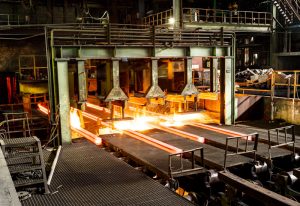Unlike the rest of the world, China’s steel market is surprisingly steady
China’s steelmaking raw materials and finished steel markets are in a real state of flux at the moment.
Receive the latest short-term and long-term outlook for the full range of industrial metals (base and ferrous) at the annual MetalMiner Forecasting Workshop on Aug. 25.
Recovery and a new dynamic impacting steel prices
On the one hand, a robust recovery from the pandemic has supported rapid price increases, both in raw materials such as iron ore and coking coal. Finished steel prices, such as rebar and HR coil, have also increased.
But Beijing’s recent policy initiatives around curbing steel output and controlling greenhouse gas emissions have created a new dynamic that should be supporting steel prices in the expectation of reduced output, yet depressing raw material prices in the expectation of reduced raw material demand.
Up until now, iron ore and coking coal prices have been doing rather well. This is despite Beijing’s decision to block Australian coking coal and thermal coal, putting a heavy reliance on Indonesian supplies this year. This has pushed imports in China from its near neighbor to near record levels.
Yet, despite the threat of reduced finished steel supplies, the domestic market has been trading sideways for much of Q2 and is down from stronger prices in the first quarter.
Capacity utilization rates at 247 of China’s blast furnaces were running at 86% recently but are still lower than the same level a year ago, Reuters reported. This suggests that although Chinese mills are enjoying steady demand the supply chain has largely recovered from the impact of last year’s pandemic.
Furthermore, cooling growth numbers are translating into a gradually softening steel market.
Each month, MetalMiner hosts a webinar on a specific metals topic. Explore the upcoming webinars and sign up for each on the MetalMiner Events page.



Leave a Reply